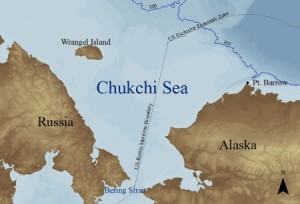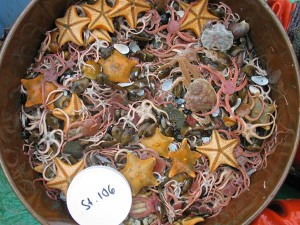
The Court of Appeals for the Ninth Circuit ruled on January 22 that the Department of the Interior illegally sold offshore oil and gas leases in the Chukchi Sea, off the northwest coast of Alaska. The court found that the government had failed to adequately evaluate the impacts of drilling—and inevitable mishaps—in the Arctic environment.
The lawsuit centers on the Chukchi Sea lease sale (known as Sale 193) that took place in 2008 under the Bush Administration. It offered nearly 30 million underwater acres in the Chukchi Sea to private oil and gas conglomerates for drilling. At the time, there were no active oil leases in the sea. Shell bid $2 billion for the right to drill exploratory wells, and other energy corporations bid $600 million. Shell attempted to begin drilling in 2012, but its first foray was cursed by Arctic weather and the accidental grounding of its main drilling vessel Kulluk.
The Ninth Circuit decided that the Bureau of Ocean Energy Management, an agency within the Interior Department, “improperly relied on an estimate of 1 billion barrels of recoverable oil from a hypothetical first Chukchi Sea production project…when it considered potential spills and blowouts,” the Alaska Dispatch reported. Environmentalists contended that the BOEM should have considered far more than one billion barrels and their attendant impact; the Interior Department’s own recent analysis counts 15 billion barrels of recoverable oil, according to the Alaska Dispatch.

The court today agreed with the plaintiffs that the Department of Interior failed adequately to analyze the potentially dramatic environmental effects of the sale before offering the leases. It determined that the agency had analyzed “only the best case scenario for environmental harm, assuming oil development,” and that this analysis “skews the data toward fewer environmental impacts, and thus impedes a full and fair discussion of the potential effects of the project.” The agency will have to revise or supplement its analysis for the lease sale once again and must reconsider its lease sale decision.
The conservation and Native groups* that joined the suit consider the Chukchi Sea ecologically fragile. The ice-choked sea is home to charismatic megafauna like polar bears, walrus, beluga whales, bowhead whales, seals and the spectacled eider. (Charismatic microfauna too: starfish, jellyfish, corals and other invertebrates live on the sea floor.)
Wrangel Island, a UNESCO World Heritage site in the Russian section of the sea, boasts “exceptionally high levels of biodiversity for this region”—the world’s largest population of Pacific walrus, a major feeding ground for migratory grey whales, 100 migratory bird species (many endangered), and 23 endemic plant species, just to name the highlights.

As has been well documented, the Arctic is warming at a faster rate than the rest of the world, putting tremendous strain on its wildlife and people. Widespread and risky energy exploration in the Chukchi Sea promises to put the polar regions in ever greater danger.
* The Native Village of Point Hope, Inupiat Community of the Arctic Slope, Alaska
Wilderness League, Center for Biological Diversity, Defenders of Wildlife, National Audubon Society, Natural Resources Defense Council, Northern Alaska Environmental Center, Oceana, Pacific Environment, Resisting Environmental Destruction on Indigenous Lands (REDOIL), Sierra Club, The Wilderness Society, and World Wildlife Fund. Earthjustice, a nonprofit environmental law organization, represented the groups.